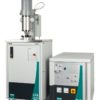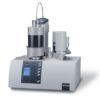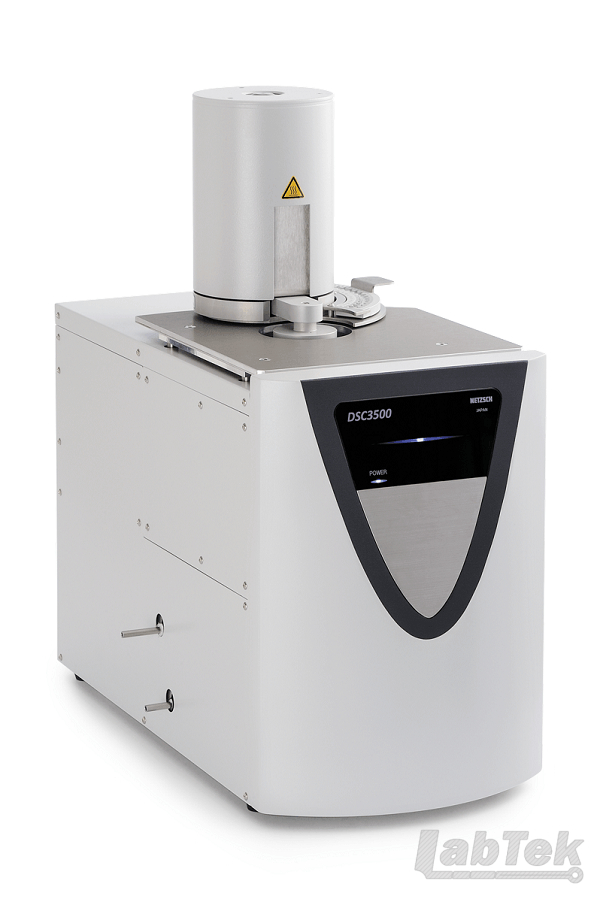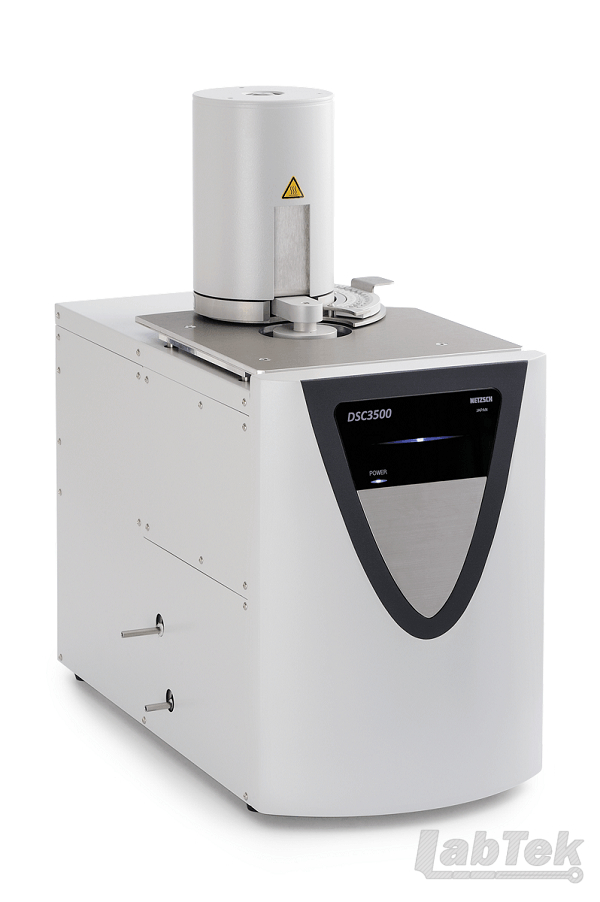Differential Scanning Calorimetry (DSC) / Differential Thermal Analysis (DTA)
?
Thanks to its versatility and explanatory power, Differential Scanning Calorimetry (DSC) is the most-employed Thermal Analysis method. NETZSCH DSC instruments work according to the heat flow principle and are characterized by a three-dimensional symmetrical construction with homogeneous heating. Sensors with high calorimetric sensitivity, short time constants and a condensation-free sample chamber in the calorimeter cell guarantee high detection sensitivity and stable, reproducible baselines over the entire life cycle of a calorimeter: ideal qualifications for successful application in research and academia, materials development and quality control.
DSC 3500 Sirius
Differential Scanning Calorimeter
The cost-effective starter instrument for material characterization
The DSC 3500 Sirius unites state-of-the-art technology with high sensitivity in a robust, easy-to-operate measuring system across a temperature range from -170°C to 600°C. The most important characteristics of the DSC 3500 Sirius measuring cell are its silver furnace with long-life heating element and its monolithic DSC sensor featuring high stability and optimal resolution.
For high sample throughput, we recommend that the unit be equipped with an automatic sample changer (ASC) – this accommodates up to 20 samples and references, even of different crucible types.
The design of the DSC 3500 Sirius developed in Japan is tailored to routine tasks in quality control and failure analysis as well as for material characterization of technical textiles, of food products, in packaging, in the polymer and cosmetic industry and for further organic or inorganic materials.
-
Temperature range:
-170°C to 600°C -
Heating rates:
0.001 K/min to 100 K/min -
Cooling rates:
0.001 K/min to 100 K/min
(depending on temp.) -
Sensor:
heat flux system -
Measurement range:
± 650 mW -
Temperature accuracy:
0.1 K -
Enthalpy accuracy:
generally < 2% -
Atmospheres:
oxid., inert (static, dynamic) -
Automatic sample changer (ASC)
for up to 20 samples and references (optional)
The DSC 3500 Sirius runs under Proteus® Software on Windows®. The Proteus® Software includes everything you need to carry out a measurement and evaluate the resulting data. Through the combination of easy-to-understand menus and automated routines, a tool has been created that is extremely user-friendly and, at the same time, allows sophisticated analysis. The Proteus® Software is licensed with the instrument and can of course be installed on other computer systems.
DSC features:
- Determination of onset, peak, inflection and end temperatures
- Automatic peak search
- Transformation enthalpies: analysis of peak areas (enthalpies) with selectable baseline and partial peak area analysis
- Evaluation of crystallization
- Comprehensive glass transition analysis
- Automatic baseline correction
- Specific heat determination
- Tau-R® Mode: takes into account the time constant and thermal resistance of the instrument and reveals thus sharper DSC effects from the sample (optional)
- Optional TM-DSC (temperature modulation) for separation of reversing (thermodynamic) and non-reversing (kinetic) effects
You can use the following software with this product:
The DSC 3500 Sirius can be equipped with various accessories and extensions for optimum adjustment of the system to your requirements. Various cooling systems (forced air via compressor or pressurized air) can be used to cool the furnace back to room temperature. The liquid nitrogen cooling system allows tests at subambient temperatures from -170°C up to 600°C.
The cost-efficient intracooler IC40 offers an alternative to liquid nitrogen cooling and makes it possible to run measurements between -40°C to 600°C.
The more powerful intracooler IC70 ensures faster cooling rates and enables working within a temperature range between -70°C and 600°C.
All cooling options can be upgraded to the DSC 3500 Sirius.
For investigation of the oxidative stability (e.g. Oxidative-Induction Time, OIT), the DSC 3500 Sirius can be equipped with a software-controlled MFC gas flow control system for three gases.




